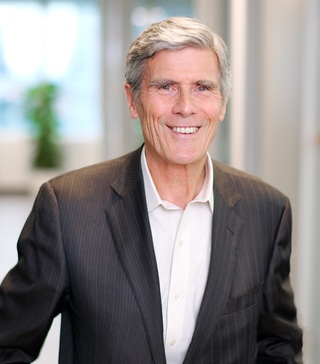Boyden’s Global Financial Services Practice welcomed special guests Ken Hugessen and John Skinner from Hugessen Consulting to discuss ‘Challenges for Bank Boards in North America Regarding CEO Compensation in a Changing Landscape’. Here we share insights and key trends.
Discussion highlights:
- Static bank CEO pay in Canada, year-on-year growth in the United States
- Post-COVID challenges related to retention, focus on pay-for-performance alignment and impacts of volatile shareholder returns
- Continued focus on CEO long-term incentives and performance metrics
- Greater integration of ESG in incentive plans among large issuers; metrics still largely qualitative
- The Big 5 Canadian banks were early movers with ESG in short- and long-term incentive plans
Members of our Global Financial Services Practice were privileged recently to discuss insights from Ken Hugessen, Partner and John Skinner, Principal at Hugessen Consulting based in Canada, on ‘Challenges for Bank Boards in North America Regarding CEO Compensation in a Changing Landscape’.
Current trends
Hugessen outlined current trends in CEO compensation in North America, including:
- On average, approximately 65 percent of CEO pay is granted as long-term equity
- The majority of long-term incentives are delivered in performance share units (PSUs)
- Among Canadian banks in 2022, actual CEO pay remained flat year-on-year, whereas in the United States CEO pay was up year-on-year; that said, broader banker bonuses were down materially year-on-year in both countries
- One-time awards are an effective attraction and retention tool, particularly in hot talent markets, but risk scrutiny by proxy advisors and some shareholders if too frequent or large, particularly signing bonuses
Hugessen shares a common approach to variable pay among major North American banks:
- Target total variable pay x business performance factor +/- discretionary & individual performance adjustments: this forms the basis of the annual short-term incentive cash payout and the long-term incentive grant (PSUs + options).
At the C-suite level below the CEO, typical weighting tends to see an increase in base salary and a decrease in equity. At the North American banks, the level of incentive pay uses an annual business performance factor, that drives cash bonus and equity award sizing. Executives would have variable compensation, usually a percentage of base salary and, depending on how the bank performs, financial and non-financial metrics would be used, moderated by secondary factors such as individual performance, risk assessment and other elements.

What’s the picture post-COVID?
While the operating environment has generally reverted to normalcy post-COVID, the many current executive compensation challenges have been heightened by world events and market disruptions.
The impact on talent of a volatile and unpredictable market highlights issues around recession expectations, different talent pressures by sector, such as layoffs in tech and financials, and sensitivity around larger executive pay packages against the backdrop of mass layoffs and weak shareholder returns. The use of equity may become more selective as organisations face retention concerns and run the risk of outsized payouts when share prices recover.
Going forward, Hugessen expects to see continued focus on pay-for-performance alignment, pressures on agreement between board and management on performance expectations, and an emphasis on how to assess performance in ‘lean’ years, together with considerations around how and when the Board should exercise discretion.
Pay differences in Canada and the United States:
- Three-year data, 2020 through 2022, reveals that US CEO pay levels remain significantly higher than Canadian peers
- Canada showed a consistent pattern in changes in pay levels throughout the COVID downturn, bounce back and subsequent levelling off: this was not evident in the United States
- Across both Canadian and US markets, the banks have shown considerable volatility when comparing year-on-year annual shareholder returns
John Skinner comments, “Coming out of COVID, labour markets have been tight and organisations have had to do extraordinary things to retain and attract talent. Financial services and tech were very hot areas, with greater retention awards and larger sign-on bonuses. We have now seen that turn, with salary budgets easing and recessionary expectations playing into mid-term compensation decisions. It’s more of a wait and see proxy season right now as pay levels are released over the next few months”.
In terms of other benefits, notably pensions, these are transitioning away from the traditional client benefit to savings type programmes. Ken Hugessen highlights, “The only exception is in trying to move someone at a very senior, CEO level. If they have the leverage and negotiating power, they could negotiate for a defined benefit programme”.

ESG in Compensation
“ESG is the topic of the day in boardrooms and the broader investment community,” asserts John. “Boards and management teams are reviewing strategy and risk through an ESG lens and other stakeholders are upping expectations on how to measure performance around these metrics. Considerations around incorporating ESG into pay programmes to achieve results will focus on primary concerns such as emissions, diversity & inclusion, health & safety, customer satisfaction and employee engagement”.
He adds, “It’s all about design elements in ESG metrics. Organizations will be at different stages, with larger issuers having more clearly designed ESG strategies, and smaller issuers feeling the pressures of having given less thought to the material risks to the business and what to measure from a compensation perspective. These organisations will need a clearer idea of what their ESG strategy is before incorporating it into compensation”.
The prevalence of ESG in incentive programmes has increased significantly over the last few years, although practical challenges limit broader adoption.
There is a material increase in the proportion of North American issuers integrating ESG measures within their annual incentive plan:
- From 62 percent in 2020 to 70 percent in 2021 among Toronto’s S&P/TSX 60
- From 57 percent in 2020 to 70 percent in 2021 among the S&P 500
According to Hugessen research, the most prevalent ESG metrics in incentive plans are:
|
Prevalence within S&P/TSX 60 |
Prevalence within S&P 500 |
|||
|
|
|||
|
|
|||
|
|
In short:
- ESG metrics are nearing universal prevalence among the largest issuers; broader market adoption is slower, particularly within long-term incentives
- Setting realistic and measurable targets over a multi-year period is the most common barrier; metrics are still largely qualitative in nature
- ESG remains a high priority for many shareholders and standardised disclosure requirements should support broader adoption in some areas, such as climate change
- The Big 5 Canadian banks were early movers in defining ESG within their compensation programmes. Some banks (e.g., TD) are notable in that ESG metrics are present in both short-term and long-term incentive programmes, highlighting climate change, diversity & inclusion and employee engagement
Additional Perspectives
Hugessen insights around more recent developments in North America and globally:
- Recent events involving SVB, Credit Suisse and First Republic are likely to have a negative impact on pay
- Stricter pay clawback rules will soon be in place in the US, although most scenarios will still require misconduct or financial restatements
- Clawing back SVB executive bonuses has been raised by politicians
- Talent will likely migrate to ‘best-in-class’ organizations
- Increasing regulatory pressures may push up demand for compliance and risk-related roles
- Europe has a leading edge in ESG expectations, including climate-related shareholder proposals, more stringent gender quotas and targets
- In Europe, executive pay is back to pre-pandemic levels, with strong incentive payouts
- In Asia-Pacific, watch out for CEO rewards; in 2022, average pay increased by 20 percent year-on-year among the top 10 highest-paid bank CEOs
- M&A activity remains steady in Asia-Pacific (vs. down in North America), with ESG remaining in the spotlight
Thank you to Ken Hugessen and John Skinner for a very interesting discussion that enhances our engagement with boards, as we help them to identify and acquire the best CEOs and senior leaders in a turbulent market.
About our featured guests
Ken and John are leaders in executive compensation and respected advisors to boards on performance, governance and other shareholder matters. They work with prominent banking, insurance and asset management organisations in Canada, the United States and the United Kingdom, as well as major Canadian Pension Plans.

Ken Hugessen, Partner

John Skinner, Principal
Ken Hugessen explains, “Our firm made its reputation in helping boards in their capacity as overseers of compensation, particularly in any situation where there is capital, such as public shareholdings, private capital or public equity, and a need for advice on executive pay. Aside from our technical capabilities, we are ‘peacemakers’, bringing ideas and approaches that people can rally around”.
He adds, “As the public-private landscape changes, we are increasingly advising private equity companies on, for example, how to pay the promoter of a deal, key people in acquired companies and the sensitive area of equity allocation among the parties”.
Hugessen Consulting helps boards of directors make the right decisions on executive compensation and its governance, CEO performance management, and Board effectiveness. The firm has more than 30 professionals in Toronto, Calgary and Montreal, and affiliated relationships with US-based Semler Brossy Consulting and leading UK-based advisors.




